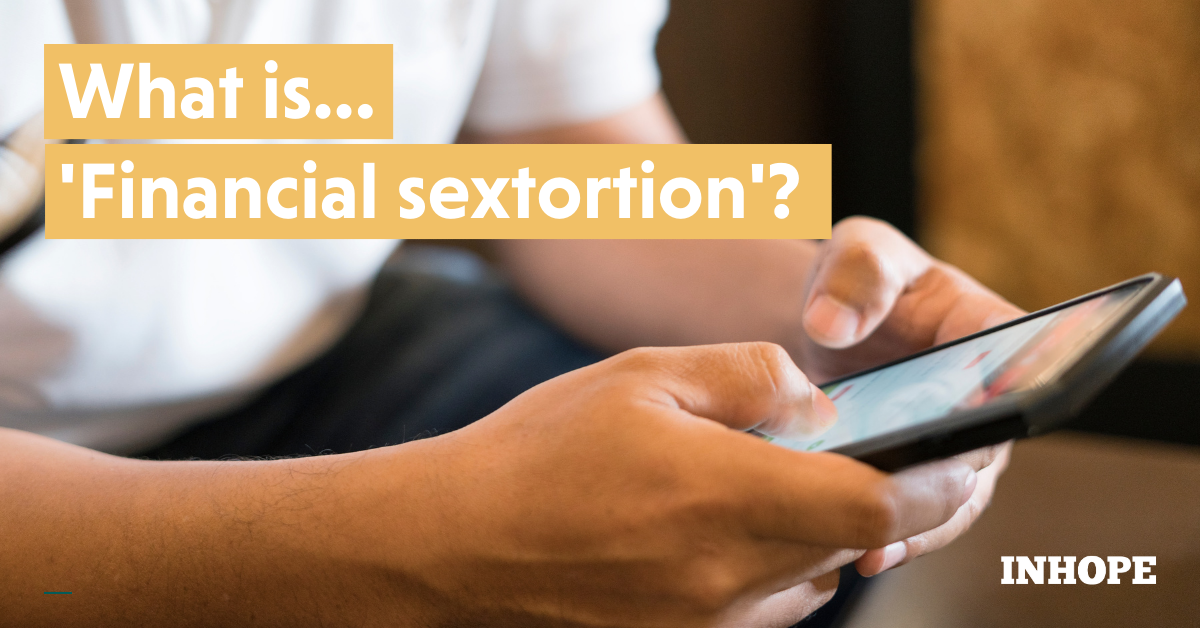Article
Educational Articles
What is financial sextortion?
Financial sexual extortion or sextortion is a type of blackmail in which the perpetrator uses threats, and intimidation to extort money from their victim. In most cases, the threat is related to the distribution or publication of intimate content of the victim.
Different from cases of traditional sextortion, financial sextortion is purely monetary and has nothing to do with sexual gratification. While traditional sextortion is motivated by sexual reasons or to exude power over a victim, financial sextortion is more comparable to an online scam. Over the past year, INHOPE member hotlines have witnessed a rapid increase in financial sextortion reports, with teenage boys being the most common targets in recent cases.
Common Perpetrator Approaches
Establishing Trust: Some perpetrators will work to establish trust with their victims over time and develop a close relationship, online or in person. Once trust is established, the bad actor will shift the conversations to sexual subjects to lower the victim's inhibitions towards sexual activity (grooming). After a sexual conversation or images have been exchanged they will threaten to expose them unless money is transferred.
Promising Gifts: An approach perpetrators commonly use on young victims is promising gifts and favours in exchange for a "quick picture." Gifts can include anything desired by the child from online game credits, and modelling contracts, to gift cards and consoles. Once images are received the perpetrator demands money for not publishing them.
Threatening to Expose: Some perpetrators don't actually extort any material from their target, but operate under threats alone. They contact victims online claiming to have obtained private content like intimate webcam footage, search histories on adult websites or sexual conversations online. The perpetrator will threaten to expose the victim to their friends, family or colleague unless money is exchanged.
Regardless of how (or whether) the perpetrator obtains the material, the fear of the material being shared among the victim’s network may cause extreme feelings of shame, anxiety and helplessness. If this happens to you, then it is important to remember that is it not your fault, you are not alone, and help is available.
What can I do if I’m being financially extorted?
Ask for help: You don't have to go through this experience alone. Contact your local helpline or law enforcement to receive advice on how to proceed. Sending the perpetrator money often won't stop them from further sextortion.
Flag: Report the account and block the perpetrator. Don't delete your messages with the perpetrator as it could be useful in identifying the offender.
Report: If intimate material of you is circulating on the internet you can get the images removed. There are various organisations that offer support in getting harmful materials removed.
-
Childline and the Internet Watch Foundation's Report Remove tool allows young people to report a nude video or image shared online to be removed.
-
The National Center for Missing and Exploited Children (NCMEC) supports young people in getting sexually explicit material removed online. The content can be directly reported to CyberTipline.
If you’ve come across sexual content of yourself or another minor, contact your local hotline to have it removed by clicking here.

If you’ve come across sexual content of yourself or another minor, contact your local hotline to have it removed by clicking here.
'